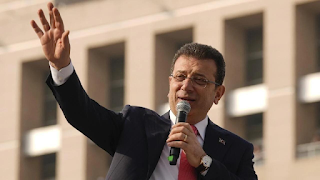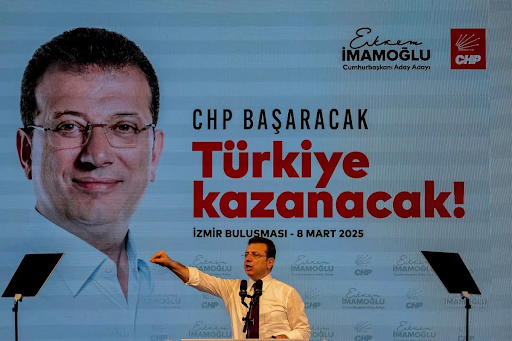Turkey is facing a period of heightened political and social unrest following the arrest of Istanbul’s mayor, Ekrem Imamoglu. This event has ignited massive protests, deepened tensions between the government and the opposition, and drawn international scrutiny over the state of democracy and rule of law in Turkey.
Mass Protests and Public Outrage
Thousands of Turkish citizens have taken to the streets in major cities, including Istanbul, Ankara, Trabzon, and Izmir, protesting Imamoglu’s arrest on charges of corruption and alleged connections to terrorist groups. The opposition Republican People's Party (CHP) has condemned the arrest as politically motivated, urging its supporters to mobilize nationwide in defense of democracy. The government, meanwhile, has cracked down on demonstrations, deploying riot police who have used tear gas and rubber bullets to disperse crowds.
A Politically Charged Arrest
Imamoglu, a prominent opposition leader and a key challenger to President Recep Tayyip Erdoğan in the upcoming 2028 elections, was detained following an early morning raid on his home in Istanbul. His arrest coincided with the cancellation of his university degree by Istanbul University, an act perceived by many as part of a broader campaign to discredit him.
Alongside Imamoglu, Turkish authorities have issued arrest warrants for 105 other municipal officials linked to the Istanbul Metropolitan Municipality. The charges against them include corruption, fraud, and alleged ties to the Kurdistan Communities Union (KCK), an organization affiliated with the outlawed Kurdistan Workers' Party (PKK). Critics argue that these accusations are baseless and reflect the government’s increasing use of the judiciary as a tool to silence political opponents.
Government Restrictions and Crackdown on Freedoms
In response to the growing unrest, Turkish authorities have imposed stringent measures, including a four-day ban on protests and public gatherings in Istanbul. Internet access and social media platforms have been restricted, while metro and transportation routes leading to key protest sites, such as Taksim Square, have been shut down. Despite these efforts, demonstrations have persisted, with students and faculty from universities like Boğaziçi, Istanbul Technical University, and Yıldız Technical University joining the movement.
Impact on Turkey’s Economy and International Relations
The arrest of Imamoglu has triggered severe economic consequences, with the Turkish lira losing 12% of its value against the U.S. dollar. The Istanbul stock exchange also experienced a sharp decline, prompting a temporary suspension of trading. Economic analysts warn that these developments could further destabilize an already fragile economy and deter foreign investment.Internationally, the European Union and other Western allies have voiced concern over Imamoglu’s detention. The Council of Europe issued a strong condemnation, describing the arrest as a move against the will of the Turkish people. European lawmakers and human rights organizations have called on Turkey to uphold democratic principles and the independence of its judiciary.
A Pattern of Political Repression?
Imamoglu’s arrest is the latest in a series of crackdowns against opposition figures, journalists, and activists. The recent imprisonment of Ümit Özdağ, leader of the nationalist Victory Party, further underscores Turkey’s deteriorating human rights record. Many fear that Erdoğan’s government is intensifying its efforts to suppress dissent and consolidate power ahead of the next elections.
An Uncertain Future for Turkey
The arrest of Ekrem Imamoglu marks a pivotal moment in Turkish politics. While the government maintains that the charges against him are legitimate, widespread public outrage and international condemnation suggest otherwise. With increasing economic turmoil, growing discontent, and the erosion of democratic norms, Turkey stands at a crossroads—one that could determine its future as either a democracy or an authoritarian state.
As the situation continues to unfold, all eyes remain on Turkey, watching whether its institutions will uphold justice or succumb further to political influence.



































No comments:
Write comments